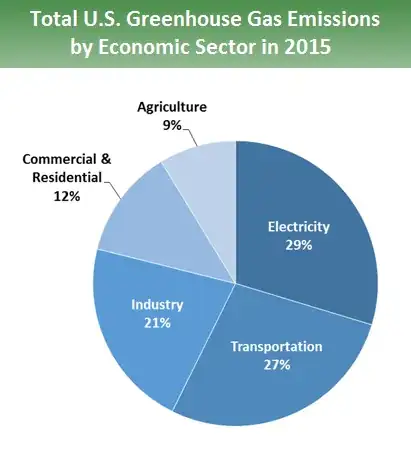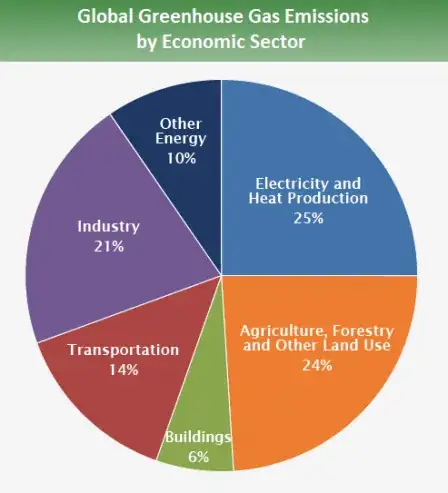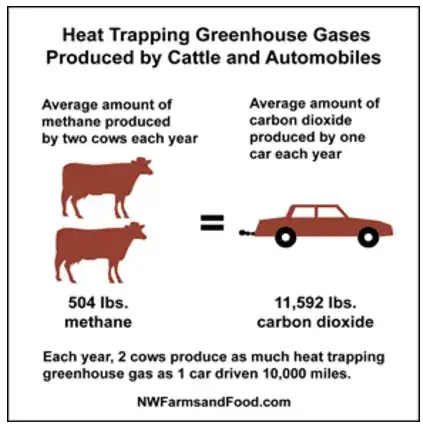TLDR: Yes. Cows produce around 9.5% of human originated pollution, or greenhouse gases (GHGs), while cars produce around 8.5% of human originated GHGs. This does not mean that humans shouldn't be blamed for climate change, however, as 85.5% of GHGs do not come from domestic animals.
Regardless of whether two cows produce as much greenhouse gas as a car, we have a lot of other polluters:
Let's take a look at the United States according to the US's EPA:

Digging down further into their numbers for Agriculture, enteric fermentation ("cow belching", or more accurately, all livestock emissions) makes up one third of the numbers for "Agriculture", which in the US is only 9% of the greenhouse emissions. Mostly it's farming that introduces greenhouse gases in agriculture.
If we look at the worldwide emissions, also on the EPA's site:

Here, agriculture & forestry together produce less than a quarter of pollution, and that includes deforestation.
They also note that, while they don't include it in the graph, the biosphere, or natural carbon cycle, offsets only 20% of the agricultural output, or 4.8% of anthropogenic GHGs. I shall not include it in my calculations as it is a global effect, not specific to cows.
According to the Food and Agricultural Organization of the United Nations, Livestock in its entirety produces 14.5% of total greenhouse gas emissions, as opposed to transportation (car, truck, airplanes) taking 14%. It also notes that cows are responsible for 65% of those emissions, for a total of 9.45% of emissions. As for cars, according to the EPA once again, "light duty vehicles" (ie, cars) make up 61% of transportation emissions, for a total of 8.54% of total emissions. So in that view, yes, cows produce more total emissions than cars, but this doesn't mean that cows are more to blame than humanity for climate change.


